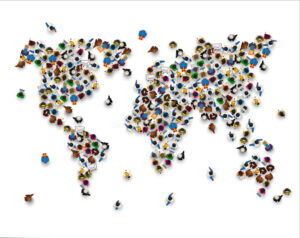
According to the United Nations, the world’s population has reached 8 billion people and is still expanding, with much of the expansion coming from developing African countries.
Nigeria is one of them. Its resources are already at a maximum capacity. In Lagos, which has a population of more than 15 million, residents struggle for everything from space on crowded buses to energy to light their houses.
The United Nations estimates that the population of the West African country will increase even more over the following three decades, from 216 million this year to 375 million. That will tie Nigeria and the United States for third place behind China and India.
Caleb Reynolds, a fourth-year business major from Broward County, said resources are already scarce, and now with the addition of more people, life is going to become like the “Hunger Games” movies.
“This world is already crowded as it is; even being in Tallahassee, the traffic is bad, so I can only imagine what it’s like around the world. The population hitting 8 billion means it’s going to be a tough time for others in developing countries trying to get food and resources, and even here in America, it’s hard to get certain resources and also hard to get good-paying jobs because of your competition,” he said.
According to predictions by the United Nations, there will be roughly 8.5 billion people on the planet in the year 2030. In the year 2050, there will be 9.7 billion people on the planet, and there will be 10.4 billion people on the planet in the year 2100.
Egypt, Pakistan, the Philippines, and India round out the list of nations with the fastest-growing populations. India is expected to surpass China as the world’s most populous country next year.
Chelsea Johnson, a third-year psychology major from Charlotte, N.C., said the population isn’t a problem; it’s the way we consume things.
“I learned at a very young age that a lot of people are selfish and greedy; people take as much as they can, not as much as they need,” she said.
For example, when people shop for a storm, they go into a frenzy over water and other supplies, leaving none for other people. That goes with everything else humans consume; we consume a lot of things, not leaving enough for others.
According to the United Nations report, the United States currently has 337 million people, with 375 million projected by 2050. The nation’s lowest population growth rate since its founding.